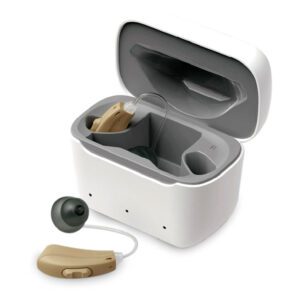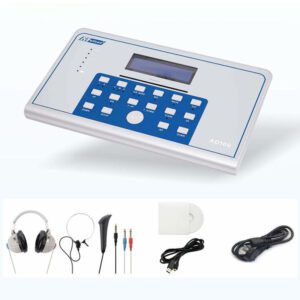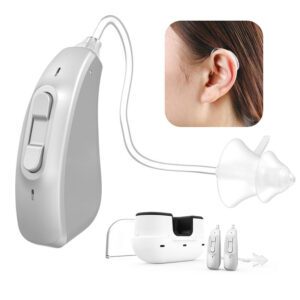hearing Loss is a growing global issue, affecting a significant portion of the population. This article aims to provide guidance on selecting suitable hearing Aids based on individual needs, emphasizing the importance of early intervention and the benefits of wearing hearing Aids.
Understanding hearing Loss:
Hearing loss is categorized into conductive, sensorineural, and mixed types. Sensorineural hearing loss, the most common type, is typically irreversible. Hearing aids are essential for managing various degrees of hearing loss, from mild to severe.
The Impact of Hearing Loss
Hearing loss can lead to communication difficulties, reduced quality of life, and even cognitive decline. Research suggests a link between untreated hearing loss and an increased risk of conditions like Alzheimer’s disease.
Benefits of Early Intervention
Seeking help early is crucial. Audiologists recommend wearing hearing aids as soon as hearing loss is noticed. Timely intervention can enhance communication, slow down the decline in hearing ability, and potentially delay cognitive deterioration.
Choosing the Right Hearing Aid:
- Degree of Hearing Loss: Consider the severity of your hearing loss. Different hearing aids are designed to address specific levels of impairment.
- Features and Functions: While higher-priced hearing aids offer more features, prioritize the functions that are most relevant to your lifestyle. Common features include noise reduction, directionality, and Bluetooth connectivity.
- Comfort and Fit: Comfort is key. Opt for a hearing aid that fits comfortably in your ear or on your ear, ensuring a secure fit without causing discomfort.
- Style Preferences: Hearing aids come in various styles, including behind-the-ear (BTE), in-the-ear (ITE), and invisible-in-canal (IIC). Choose a style that aligns with your preferences and comfort.
- Battery Life: Consider the battery life of the hearing aid. Longer battery life can reduce the frequency of changing batteries or recharging.
- Cost Consideration: While cost is a factor, the most expensive option isn’t always necessary. Focus on the hearing aid that meets your needs without exceeding your budget.
- Trial Period: Many hearing aid providers offer trial periods. Take advantage of this to ensure the chosen hearing aid suits your needs and preferences.
- Professional Advice: Consult an audiologist or hearing healthcare professional. They can conduct thorough assessments and recommend the best hearing aid for your specific needs.
Conclusion
Hearing loss affects a significant portion of the population and can have profound impacts on various aspects of life. Early intervention through appropriate hearing aids can significantly improve communication, quality of life, and potentially delay cognitive decline. By considering factors such as degree of hearing loss, features, comfort, style, and professional advice, individuals can choose the most suitable hearing aid to address their unique needs and preferences.



